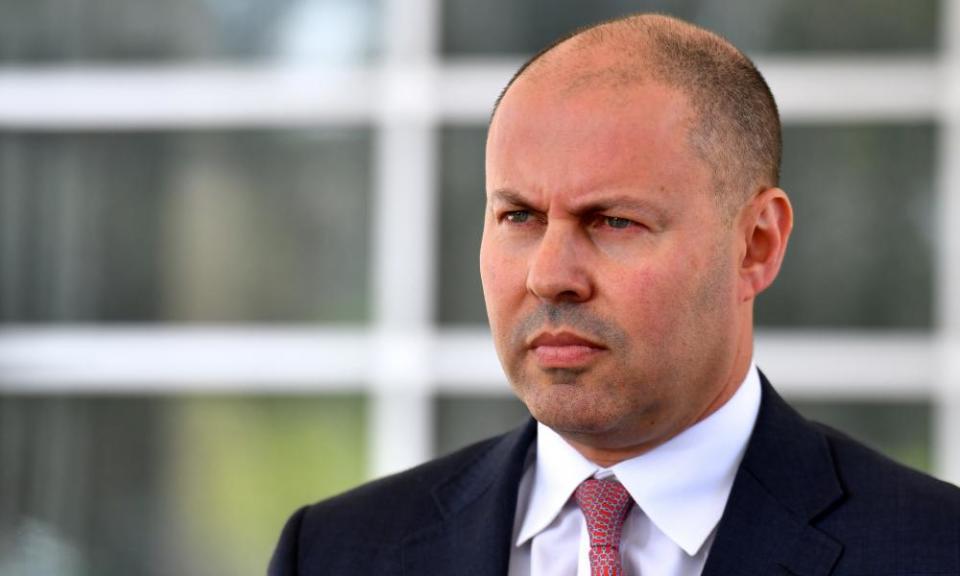'Inevitable' Google and Facebook will pay for Australian news, treasurer says

Josh Frydenberg has warned the internet giants it is “inevitable” they will pay for news content and their threats to shut down core functions in Australia do them a “big disservice”.
At a doorstop on Sunday, the treasurer said the Morrison’s government intended to become a “world leader” in regulating social media and search companies, who he accused of shifting the goalposts in their opposition to the proposed bargaining code of conduct.
Related: What are my options if Google shuts down search in Australia?
Google and Facebook are both fighting against legislation currently before the parliament that would force them to enter into negotiations with news media companies for payment for content, with an arbiter to ultimately decide the payment amount if no agreement can be reached.
On Friday, the pair escalated the dispute by threatening to remove the Google search engine from Australia and Facebook to remove news from the Facebook feeds of all Australian users.
The threats follow the revelation that Google has been experimenting with hiding some Australian news sites from search results, in a move media outlets said was a show of “extraordinary power”.
Frydenberg told reporters in Melbourne the government had worked with the Australian competition regulator for two years developing the code to “see the digital giants pay for original content that is generated by our media businesses”.
Frydenberg accused the tech companies of “changing the goalposts” by first opposing the government’s proposal of final offer arbitration and now opposing paying for clicks on media content displayed in search results.
He said “if the clicks for media content is such a small proportion of their overall clicks on the search” that would be reflected in the payment determined by the independent arbiter.
Frydenberg noted the government’s position was supported by media companies and public polling, after a Dynata poll conducted for the Australia Institute’s Centre for Responsible Technology found that four in five respondents found it “disturbing” that Australian results could be removed from news feeds.
“It seems that digital giants did themselves a big disservice last week when they very openly and publicly threatened the Australian public with pulling out of Australia effectively with search if legislation proceeds as it currently stands,” Frydenberg said.
The treasurer said crossbenchers and the Australian Greens had spoken in support of the code, but accused Labor of “getting splinters sitting on the fence”.
“My view is that it is inevitable that the digital giants will be paying for original content and the choice for Australia, is: are we world leaders … and first off the rank when it comes to putting in place such a code? Or we can follow others further down the track when they do it.”
Facebook has called the code unworkable in its current form, and has asked for digital platforms to be given six months’ grace to negotiate deals with news companies directly before being hit with the “big stick” of the mandatory code.
Google has said it could accept arbitration as a “reasonable backstop” to secure investment in news but Australia’s model is flawed because it considers only news companies’ costs and not Google’s – and encourages “ambit claims”.
On Friday Google struck a deal with a group of French publishers to pay for news through its News Showcase platform, which is not overseen by independent arbitration.

 Yahoo Finance
Yahoo Finance 